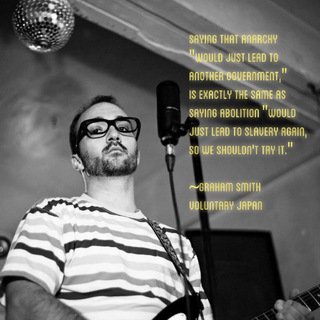I'm gonna get a little Zen and the Art of Motorcycle Maintenance on you in this one.
Still working my way up to this paper I am putting together. Just a little thought exercise.
We know that, economically speaking, all value is subjective. That is to say, in order for something to be considered "valuable," there have to be value-ers.
Even gold could theoretically become worthless should it lose it's general utility to individual actors in the market.
It is amazing that at one point in history shells were valued far more than gold, basically worldwide. The market creates value, economically speaking.
Ten years ago could you have imagined that invisible, intangible systems of computer algorithms called "crypto coins" would, in the very near future, be developed and worth thousands of dollars?
Now, when this gets really deep, we ask the question of intrinsic value. Does human life have intrinsic value? I say it does. Is this simply because we value it? Well, that could be convincingly argued. We find ourselves in a kind of chicken/egg conundrum.
Suffice it to say, for all the folks saying "You cannot create value out of "thin air," I would like to know what value was created from, if not marginal utility, and the individual wants and needs that appeared "out of thin air" as people tried to live their lives more comfortably and purposefully, and effectively created the market.
~KafkA
Graham Smith is a Voluntaryist activist, creator, and peaceful parent residing in Niigata City, Japan. Graham runs the "Voluntary Japan" online initiative with a presence here on Steem, as well as Facebook and Twitter. (Hit me up so I can stop talking about myself in the third person!)



Value is in the mind of those that put a value on something. Intrinsic values come from permanent values, like air and water.
One can create a value at any time or even have a value forced upon you by your situation. An anti-gun person may value a pistol when being attacked by a hungry tiger, for example.
Values are relative. "One man's trash is another man's treasure," applies.
Downvoting a post can decrease pending rewards and make it less visible. Common reasons:
Submit
Even air and water should be viewed as subjectively valuable, economically speaking, in my view.
In order for these to be valued, humans must first value the for their ability to sustain life. If someone doesn't value his/her life, (a tragedy) air and water no longer have value to this individual actor, really.
An extreme example, but good for the thought exercise.
Downvoting a post can decrease pending rewards and make it less visible. Common reasons:
Submit
Something that will soon be among the most dire of issues: air and water! Love the Zen reference too.
Downvoting a post can decrease pending rewards and make it less visible. Common reasons:
Submit
IMO, I don't think we need to go much further than perception. You either perceive a value or you don't. If there is no perception, there is nothing to talk about. A value is an abstraction that permeates a consciousness. It does not exist anywhere else.
Downvoting a post can decrease pending rewards and make it less visible. Common reasons:
Submit
You have interesting posts my friend. Followed!
Downvoting a post can decrease pending rewards and make it less visible. Common reasons:
Submit
Thank you very much, @sulev!
Downvoting a post can decrease pending rewards and make it less visible. Common reasons:
Submit
I think there is a plethora of "out of thin air" value in today's society. How much of any smart phone's capabilities are actually put to use by the majority of consumers? And yet, there are throngs of people who will wait outside Apple stores when the next version comes out. "It doesn't have an earphone jack!!!!!"
Downvoting a post can decrease pending rewards and make it less visible. Common reasons:
Submit
I don't know what creates the perception of value in individuals but I have always said something is only worth what someone will pay for it.
I think intrinsic value is driven by a mix of utility, scarcity, and material that can't be counterfeited. All of these create a confidence in the material or item. Utility would be the only variable that could change in a persons perception of items. So would that mean Utility = value almost solely while the other too qualities determine how effective a store of value the item is?
You can't eat or drink a gold eagle, bitcoin, or a bullet.
Downvoting a post can decrease pending rewards and make it less visible. Common reasons:
Submit
Value is whatever we decide it to be. However, there are certainly things that can be safer bets for holding value than others. Precious metals for example, as well as other natural resources, get their value from their practical use. So I can safely assume that tomorrow that value will remain fairly steady, barring a global catastrophe such as an asteroid strike or nuclear war. For the value of such a thing to disappear would require a massive shift in human technology and culture.
There are of course things with value that are far less certain. Tulip mania is a great example of this. Value was driven entirely by societal demand rather than practical usage. This led to a wildly speculative value that diminished as quickly as it rose. Value that is backed by culture only is volatile as cultures can see radical shifts over short periods.
As for how this relates to cryptos, it's a bit of both. There are real world practical uses that these currencies support, but there are many coins that are simple copies that really fail to reach that practical usage. People are still figuring out this new world, and it's a mixed bag of precious metals and tulips. Over time the tulips will subside and the ideas backed by practical value will endure and grow.
Downvoting a post can decrease pending rewards and make it less visible. Common reasons:
Submit
Excellent commentary. Thanks for this. Followed.
Downvoting a post can decrease pending rewards and make it less visible. Common reasons:
Submit
I was just thinking about how people think about value differently over time, and especially before and after getting involved in cryptocurrency... we're beginning to tackle the idea of value in it's most naked forms. Anyhow, it's a fascinating topic, I look forward to your further thoughts on the matter. I appreciate the ZAMM reference. :)
Downvoting a post can decrease pending rewards and make it less visible. Common reasons:
Submit
Glad someone got that. Thanks. Yes, I agree, and extremely well said!
Downvoting a post can decrease pending rewards and make it less visible. Common reasons:
Submit
Certainly not imported from other planets...
Downvoting a post can decrease pending rewards and make it less visible. Common reasons:
Submit
Nothing has intrinsic value. It's all made up
Downvoting a post can decrease pending rewards and make it less visible. Common reasons:
Submit
Is this statement intrinsically true?
Downvoting a post can decrease pending rewards and make it less visible. Common reasons:
Submit
nothing is
Downvoting a post can decrease pending rewards and make it less visible. Common reasons:
Submit
Is that statement? Because if that statement isn't true, it is self-nullifying.
"Nothing is true."
If that is not true, intrinsically, is it just true relatively?
Downvoting a post can decrease pending rewards and make it less visible. Common reasons:
Submit
relatively.
Downvoting a post can decrease pending rewards and make it less visible. Common reasons:
Submit
absolutely relatively?
Downvoting a post can decrease pending rewards and make it less visible. Common reasons:
Submit
relatively relatively
Downvoting a post can decrease pending rewards and make it less visible. Common reasons:
Submit
Are you sure?
Downvoting a post can decrease pending rewards and make it less visible. Common reasons:
Submit